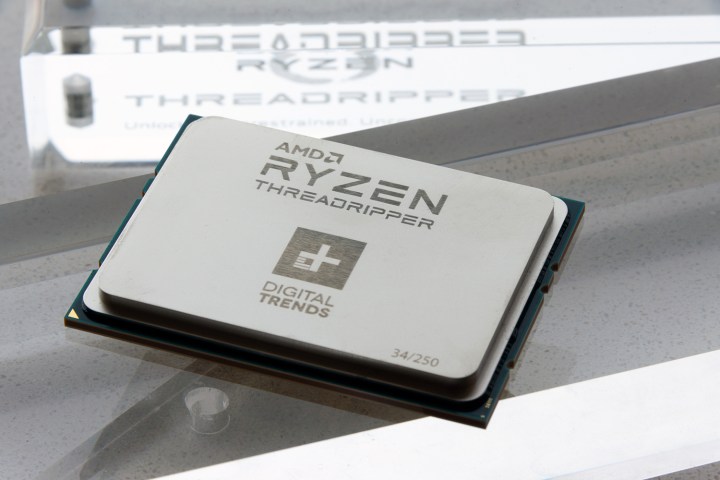
AMD’s next-generation Ryzen Threadripper desktop processors for enthusiasts will supposedly launch on August 13, 2018. We already knew they were on the way given that AMD introduced the Ryzen Threadripper 2000 family during its Computex livestream in early June, but now unnamed sources close to AMD are providing an actual launch date.
Here’s what we know about these processors so far:

The new Threadripper chips will be based on AMD’s refreshed Zen architecture manufactured with the 12nm process. They’ll include the latest Precision Boost and XFR clocking technologies for higher, more stable out-of-the-box boost speeds and better overclocking. And like the first-generation Threadripper chips, these processors will require motherboards with the large TR4 seat/socket.
According to AMD, you can swap out your current Threadripper chip for one of the newer models without any issues. But you may not see the full performance level and overclocking benefits of the second-generation chip if it’s installed in the older motherboards compared to the second-generation motherboards that were designed to support all the second-generation Threadripper benefits. Even more, the 250-watt power draw may (or may not) be an issue with some first-generation Threadripper motherboards.
AMD released three Threadripper processors in 2017, with the 1950X serving as the company’s flagship processor for enthusiasts. Pulling a lower 180 watts of power, it includes 16 cores and 32 threads with a base clock speed of 3.4GHz and a maximum speed of 4.0GHz. The upcoming 2990X doubles the core count, keeps the base speed, and increases the maximum speed by 200MHz. The drawbacks are a higher power requirement and a higher price tag.
Meanwhile, the 2950X seemingly serves as a replacement of the current 1920X. The older chip packs 12 cores and 24 threads with a base speed of 3.5GHz, a maximum speed of 4.0GHz, and a power draw of 180 watts. The 2950X doubles the core and thread count, but currently we don’t know anything about the newer chip’s base and boost speeds. It will supposedly have a larger power draw and a higher price tag, too.
As a sign of the impending second-generation Threadripper release, the current chips are marked down if you want a high-end AMD processor without having to sell your organs on the black market. The 16-core Threadripper 1950X can be purchased for $779, which is $220 off the chip’s original price. The 12-core Threadripper 1920X can be purchased for $620 – $179 off the original price – while the 8-core Threadripper 1900X remains at a steady $429.
While $1,500 for the Threadripper 2990X may look highly expensive next to the now-discounted Threadripper 1950X, Intel’s 28-core monster showcased during Computex will supposedly cost around $10,000. The chip ran overclocked at 5GHz thanks to a Hailea HC Series water chiller mounted within the demo desktop. Given that setup, don’t expect the out-of-the-box speeds to be quite that high.
Editors' Recommendations
- AMD’s upcoming APUs might destroy your GPU
- AMD Zen 5: Everything we know about AMD’s next-gen CPUs
- 4 CPUs you should buy instead of the AMD Ryzen 7 5800X3D
- We have some good news about AMD’s next massive CPU launch
- AMD’s new CPUs let you play Cyberpunk without a graphics card



